Nose Surgery in Egypt
Search and Compare the Best Clinics and Doctors at the Lowest Prices for Nose Surgery in Egypt

Find the best clinics for Nose Surgery in Egypt
With Medijump you can browse 22 facilities offering Nose Surgery procedures in Egypt. The cheapest price available is $926 in Cairo. And for the cheapest price globally, prices start from $101 in Poland.
Nose Surgery in Cairo
Price: $ 926
Poland offers the best prices Worldwide
Price: $ 101
UCAN Clinics, located in Al Wosta, Cairo, Egypt offers patients Nose Surgery procedures among its total of 26 available procedures, across 2 different specialties. Currently, there's no pricing information for Nose Surgery procedures at UCAN Clinics, as all prices are available on request only, whilst the national average price is approximately $1,593. All procedures and treatments are undertaken by just a small team of specialists, with 2 in total at the Clinic, and they are not accredited by any recognized accreditations institutes
Zamalek Medical Center, located in Al Wosta, Cairo, Egypt offers patients Nose Surgery procedures among its total of 25 available procedures, across 3 different specialties. Currently, there's no pricing information for Nose Surgery procedures at Zamalek Medical Center, as all prices are available on request only, whilst the national average price is approximately $1,593. All procedures and treatments are undertaken by just a small team of specialists, with 2 in total at the Hospital, and they are not accredited by any recognized accreditations institutes
- Home
- Egypt
Compare Before & After Photos of _procedure_photos.phpNose Surgery
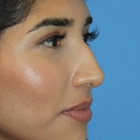
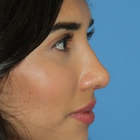
Full-side view
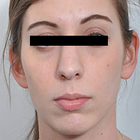
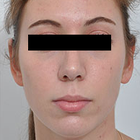
Front view
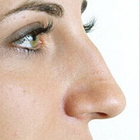
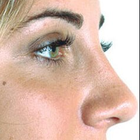
Full-side view
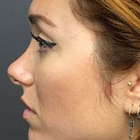
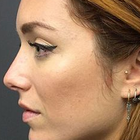
Full-side view
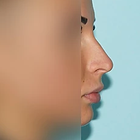
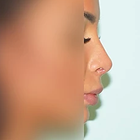
Full-side view
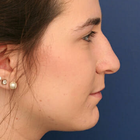
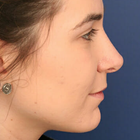
Full-side view
WHY US?
At Medijump, we're making medical easy. You can search, compare, discuss, and book your medical all in one place. We open the door to the best medical providers worldwide, saving you time and energy along the way, and it's all for FREE, no hidden fees, and no price markups guaranteed. So what are you waiting for?

Free

Best Price

Widest Selection

Risk-Free
What you need to know about Nose Surgery in Egypt
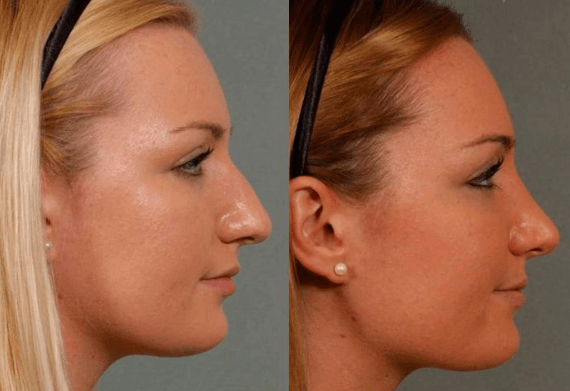
Commonly referred to as a Rhinoplasty, it is the medical term for reshaping of the nose or corrective surgery of the nose. It is one of the most common facial plastic surgeries (Facelift) procedures performed. Nose surgery can be performed to change the consequence of genetics, birth defect or nasal injury. It can be performed to enhance the appearance and/or to improve nasal breathing.
Surgery can be performed to correct nasal humps, the curvature of nose-bridge, nose tip irregularities, and asymmetry in the nostrils. The nasal appearance can be altered in various ways using intra-nasal chisels. Nose surgery procedures generally fall under three types: open rhinoplasty, closed rhinoplasty, and tip rhinoplasty. Rhinoplasty is normally performed under general anesthesia and will not leave any visible scars on the nose.
What does a Nose Surgery Procedure Involve?
Nose surgery is an individualized surgery. Before the surgery, you will need to discuss important factors with your surgeon to determine if it is suitable for you. Your surgeon will review your medical history, including your previous surgeries, medical conditions, and any medications you are taking. You will need to have a complete physical examination, such as blood tests. Your surgeon will also consider your other facial features, the skin on your nose, and what you would like to change or correct. Then, your surgeon will develop a customized plan for you. Two weeks before and after surgery, avoid any medications that contain aspirin or ibuprofen, such as Advil and Motrin IB because these medications can increase bleeding. You will need to also stop taking herbal remedies and over-the-counter supplements. If you are an active smoker, stop smoking because smoking can slow your healing process and increase the risk of getting an infection.
During the actual surgery, you will be given either local anesthesia or general anesthesia. The type of anesthesia depends on how complex the surgery is and what the surgeon would prefer to use. Then, the surgery will start by making incisions inside your nose or at the base of your nose between your nostrils. Your surgeon will reshape the inner bone and cartilage underneath your skin to make a more pleasing appearance.
There are several ways to change the shape of your nasal bones or cartilage, depending on your nose’s structure and how much needs to be removed or added. If only small changes are required, your surgeon may use cartilage taken from deeper inside your nose or your ear. However, for a much larger change, your surgeon may use cartilage from your rib, implants, or bone from other parts of your body. When the changes are finished, your surgeon will place the nose’s skin and tissue back. The incisions will be closed by stitches.
How Long Should I Stay in Egypt for a Nose Surgery Procedure?
If everything goes well, you can go back to your hotel on the same day once the effects of anesthesia wear off. However, you will need to stay in a recovery room for a few hours so the staff can monitor you. Some people may need to stay in hospital overnight. After you are discharged from the hospital, you will need to stay in Egypt for at least 10 to 14 days for initial recovery, follow-up checkups, and for the stitches to be removed.
What's the Recovery Time for Nose Surgery Procedures in Egypt?
The recovery period for nose surgery can be different from person to person. In general, 2 to 3 weeks is needed until you can get back to your full normal routine and 3 to 6 weeks until you can do any strenuous activity. However, you should be able to go back to work within a week, except if your job requires strenuous physical activity. You will feel gradually better each day in the first week. You will experience swelling, which can take six months to subside. The only people who will notice the swelling is you and your surgeon. Your final nose shape will be apparent after it is completely healed.
What sort of Aftercare is Required for Nose Surgery Procedures in Egypt?
After the surgery, you may need to wear a nasal splint for the first week. The splint is used to protect and support your nose. Your nose may be congested due to swelling or from the nasal splint. You need to rest in bed with your head raised higher than your chest to reduce bleeding and swelling. For a few days after the surgery, you may also experience slight bleeding and drainage of mucus. Your surgeon may place a “drip pad” under your nose to absorb drainage.
Your surgeon may ask you to avoid strenuous activity, take baths instead of showers, avoid blowing your nose, eat high-fiber foods to avoid constipation, not to do any facial expressions (smiling or laughing), not wearing pull clothing and wear button-downs instead.
For at least several weeks after the surgery, do not rest eyeglasses or sunglasses on your nose to prevent pressure. You should also wear SPF 30 sunscreen when you are outside because too much sun can cause permanent irregular discoloration to your nose. Do not put anything such as ice or cold packs on your nose even though it is swelling as the swelling will go away faster by limiting your dietary sodium.
What's the Success Rate of Nose Surgery Procedures in Egypt?
Nose surgery is known to have around 80% to 90% success rate. Nevertheless, just like any other surgery, it still has possible risks and complications. These risks are bleeding, infection, numbness, permanent nerve damage, and an adverse reaction to the anesthesia. You should call your surgeon immediately if you suspect any of the symptoms. Other possible risks are difficulty breathing through your nose, uneven-looking nose, persisting pain, swelling, and discoloration, scarring, septal perforation, and the need for a second or third surgery.
For an in-depth analysis of the closed rhinoplasty procedure with before and after images, watch this short video.
Are there Alternatives to Nose Surgery Procedures in Egypt?
If you do not want to undergo surgery, or if it is not suitable for you, you can get filler injections, such as Botox, Juvaderm, and Restylane. They can change the shape of your nose and only require a short visit to the doctor. This method is not painful and needs no incisions or stitches.
Whilst the information presented here has been accurately sourced and verified by a medical professional for its accuracy, it is still advised to consult with your doctor before pursuing a medical treatment at one of the listed medical providers
No Time?
Tell us what you're looking for and we'll reachout to the top clinics all at once
Enquire Now

Popular Procedures in Egypt
Prices Start From $404

Prices Start From $111

Prices Start From $70

Prices Start From $220

Prices Start From $1,945

Prices Start From $192

Prices Start From $500

Recommended Medical Centers in Egypt for Nose Surgery

- Interpreter services
- Translation service
- Religious facilities
- Medical records transfer
- Medical travel insurance
- Health insurance coordination
- TV in the room
- Safe in the room
- Phone in the room
- Private rooms for patients available

- Interpreter services
- Translation service
- Religious facilities
- Medical records transfer
- Medical travel insurance
- Health insurance coordination
- TV in the room
- Safe in the room
- Phone in the room
- Private rooms for patients available

- Interpreter services
- Translation service
- Religious facilities
- Medical records transfer
- Medical travel insurance
- Health insurance coordination
- TV in the room
- Safe in the room
- Phone in the room
- Private rooms for patients available

- Interpreter services
- Translation service
- Religious facilities
- Medical records transfer
- Medical travel insurance
- Health insurance coordination
- TV in the room
- Safe in the room
- Phone in the room
- Private rooms for patients available

- Interpreter services
- Translation service
- Religious facilities
- Medical records transfer
- Medical travel insurance
- Health insurance coordination
- TV in the room
- Safe in the room
- Phone in the room
- Private rooms for patients available

- Interpreter services
- Translation service
- Religious facilities
- Medical records transfer
- Medical travel insurance
- Health insurance coordination
- TV in the room
- Safe in the room
- Phone in the room
- Private rooms for patients available

- Interpreter services
- Translation service
- Religious facilities
- Medical records transfer
- Medical travel insurance
- Health insurance coordination
- TV in the room
- Safe in the room
- Phone in the room
- Private rooms for patients available

- Interpreter services
- Translation service
- Religious facilities
- Medical records transfer
- Medical travel insurance
- Health insurance coordination
- TV in the room
- Safe in the room
- Phone in the room
- Private rooms for patients available

- Interpreter services
- Translation service
- Religious facilities
- Medical records transfer
- Medical travel insurance
- Health insurance coordination
- TV in the room
- Safe in the room
- Phone in the room
- Private rooms for patients available

- Interpreter services
- Translation service
- Religious facilities
- Medical records transfer
- Medical travel insurance
- Health insurance coordination
- TV in the room
- Safe in the room
- Phone in the room
- Private rooms for patients available
Nose Surgery in and around Egypt
About Egypt
Egypt is a spectacular fusion of splendid beaches, diverse wildlife, delectable cuisine, and a consistently sunny climate. Its historical significance is rooted deeply in Ancient Egypt - one of the most influential and fascinating civilizations to have ever existed. Journey back into the corridors of time as you visit Egypt's famous architectural wonders such as the iconic Pyramids of Giza and the historically rich Valley of the Kings.
With every twist and turn along the River Nile, brace yourself for a captivating journey into the past, and lose yourself in the labyrinth of bustling bazaars. Egypt invites you to revel in the architectural grandeur of some of its most renowned temples, be awed by the commanding presence of the Sphinx, and acquaint yourself with the distinct Nubian culture. Egypt presents an intriguing mélange of timeless history, vibrant cultures and stunning natural beauty.
One of the unique advantages of considering cosmetic surgery in Egypt is that it allows you to pair your medical trip with a satisfying holiday, all at a price that would typically cover only the surgery in many developed nations. Many top-notch clinics are concentrated in Cairo, the capital. However, there are also excellent private medical facilities in Heliopolis, Zamalek, Maadi, and Gizeh. Eleven of these are accredited by the Joint Commission International (JCI), vouching for their high quality of services.
The bulk of the medical tourists in Egypt come from other Arabic-speaking nations and across the African continent, drawn in by the affordability and expertise on offer. Particularly, Nose Surgery procedures have gained notable popularity, further consolidating Egypt's position as a favorable destination for medical tourism.
Popular Parts of Egypt
Currently, Egypt is home to over 95 million inhabitants, securing its place as the most populous country in North Africa and standing third in terms of population across Africa. With its majestic historical landmarks, the sweeping expanse of the Nile, and the captivating allure of its deserts, Egypt extends an open invitation to all who seek to explore the grandeur of the ancient world. This fusion of history and natural beauty offers a unique landscape that continues to enchant millions of global citizens, making Egypt a must-visit destination.
- Cairo is the capital of Egypt as well as the largest city in the country and it is a perfect blend of ancient and modern culture. Visitors from all over the world come to see the Great Pyramid of Giza, the iconic Sphinx, or the magnificent tomb of Tutankhamun. Modern attractions such as its countless museums and busy markets are also popular with tourists.
- Luxor has frequently been called the world’s greatest open-air museum. Tourists can visit the Valley of the Kings, wander around the Temple of Dier el-Bahari, or discover the beauty of the Karnak Temple. Not only home to the extraordinary temple ruins of ancient Thebes, but this city also lies in a breathtaking setting of the Nile River and astonishing desert. Tourists should complete their visit to this beautiful city by taking a sunset felucca cruise on the Nile River.
- Alexandria is a major economic center and the second-largest city in Egypt. The city has an impressive and interesting past, which began when Alexander the Great founded the city around 331 BC and it was home to the Pharos and the Great Library. Now, although the legendary buildings have disappeared, tourists can still learn about its past from the Alexandria National Museum, Bibliotheca Alexandrina, Kom el-Dikka, and Fort Qaitbey. Tourists can also relax in The Corniche, a scenic promenade overlooking the beautiful sea.
- Aswan is located in the south of Egypt. It is part of the UNESCO Creative Cities Network in the craft and folk art category. The city is a major destination for cruise boats on the River Nile, making it a favorite place for tourists. The local market in this city is known to be a superb place for holiday shopping, especially for those looking for fresh spices. The most popular attractions in or around the city are Sharia as-Souq, Nubian Museum, Unfinished Obelisk, Abu Simbel, and Philae Temple.
- Sharm El Sheikh is situated on the coastal strip along the Red Sea. The city is the perfect beach gateway and is known for its outstanding beaches and some of the best dive spots in the world with a stunning coral reef. Dive into the crystal clear water and encounter schools of sharks, moray, and barracuda. Other than the underwater scenery, tourists can explore the Sinai desert by camel, take a tour to Saint Catherine’s Monastery, or relax in the Red Sea Resort.
Weather and Climate in Egypt
Characterized mainly by a sweltering desert climate, Egypt remains significantly dry throughout, apart from its northern areas along the Mediterranean Sea. These northern regions break from the norm, being comparatively more humid and receiving the lion's share of the country's annual rainfall, offering a contrasting picture to Egypt's otherwise arid landscape.
Summer in Egypt exhibits average temperatures hovering around 35 °C, but there can be instances where temperatures escalate beyond 40 °C. These extreme temperature spikes are often accompanied by increased levels of humidity, intensifying the overall heat experience during the country's summer months.
Winter ushers in a pleasant climate, making it a popular time for tourists, although it results in crowded tourist spots and slightly higher costs. Cities like Alexandria may receive occasional showers, contributing to increased dampness during this season.
Winter is recognized for being Egypt's breeziest season. During this time, daytime temperatures typically float around a comfortable 20°C. When night descends, the temperature can drop further towards 10°C, introducing a gentle chill. Mindfully sandwiched between the country's dominant hot desert climate, this period offers a refreshing contrast as it unveils Egypt's mild winter chill.
Getting Around in Egypt
There are several international airports in Egypt: Cairo International Airport, Burg Al Arab Airport, Hurghada Airport, Luxor Airport, Marsa Alam Airport, and Sharm El Sheikh International Airport. The main and the busiest airport is Cairo International airport which serves both domestic and international flights to Asia and Europe. The airport is the hub for Egypt Air, Egypt Air Express, and Nile Air. Budget airlines such as Flynas and FlyEgypt also operate flights from this airport.
Egypt has a dependable and efficient public transport network and tourists can travel by rail which covers a limited network of routes. Trains travel is the best option for long-distance travel and there are air-conditioned trains that offer a more comfortable option. But if you are looking for a cheaper alternative, a non-air-conditioned economy class is also available.
If you're looking for a budget-friendly and swift mode of travel, buses present an ideal choice. Primarily employed for longtrips, these buses conveniently link major cities across the country. Tickets for these bus journeys can be conveniently secured at the Cairo Gateway bus terminal, making it an easily accessible option for tourists interested in exploring the breadth of Egypt.
Taxis and Uber are available in most cities, providing easier travel for tourists. In Cairo, the taxis are painted white and black. In Alexandria, the taxis are painted orange and black. The taxis are generally metered but there are also taxis that will refuse to use the meters. Tourists should insist on using the meter or agree on a fare before getting into one. Long-distance group taxis are also available and are relatively cheap and be sure to agree on the fares and bargain if necessary.
Tourist Visas in Egypt
Every traveler planning a visit to Egypt needs a visa, barring citizens from visa-exempt countries such as Bahrain, Hong Kong, and Saudi Arabia who are allowed to stay for up to 90 days without one.
A Visa-on-Arrival service, which simplifies the process, is available to several nationalities, including Australia, Japan, Russia, and all European Union citizens. This Visa-on-Arrival is valid for an initial 30 days but can be extended for another 30 days if needed. These visa policies aim to facilitate easier and regulated travel to and from Egypt.
For citizens of 46 countries, which includes major nations such as the United States, Canada, and the United Kingdom, an electronic visa is easily available. The e-Visa, valid for a 30-day period, can conveniently be applied for and obtained online via the official Egyptian government's website.
For all other nationals who don't fall under the visa exemption agreement, visa on arrival, or electronic visa categories, a visa application must be filed at their nearest Egyptian embassy or consulate. This makes the process of securing a visa to Egypt more streamlined and accessible, ensuring a smooth travel experience for visitors.
Additional information about the Visas:
- All visitors to Egypt must have a passport valid for at least six months beyond their intended date of departure from Egypt.
- Visitors who obtain a visa on arrival or an e-Visa must pay a visa fee. The visa fee varies depending on your nationality.
- Visitors who apply for a visa at an Egyptian embassy or consulate may also need to provide additional documentation, such as a proof of onward travel or a letter of invitation.
Additional Information
- Local Currency: The local currency is the Egyptian pound (EGP). 1 USD will get you 30.90 EGP.
- Money & Payments: ATMs are available in major cities, but if you are planning to go to remote places, prepare to bring cash with you. Credit cards are accepted in the midrange and high-end restaurants, hotels, and shops. Tipping is generally expected everywhere.
- Local Language: There are various languages spoken in Egypt. The official language is Classical Arabic but the most widely spoken language is Egyptian Arabic. Since the county was occupied by the British from 1882 to 1952, many people will speak English.
- Local Culture and Religion: Islam is the state religion of Egypt. There are also small groups of Christian and Jews.
- Public Holidays: Egypt celebrates religious and national holidays including Coptic Easter Sunday, Christmas Day, End of Ramadan, and Revolution Day.
Popular Searches
- Plastic Surgery in Thailand
- Dental Implants in Thailand
- Hair Transplant in Thailand
- Breast Augmentation Thailand
- Gastric Sleeve in Thailand
- Gender Reassignment Surgery in Thailand
- Laser Hair Removal in Bangkok
- Botox in Bangkok
- Dermatology in Bangkok
- Breast Augmentation in Bangkok
- Coolsculpting in Bangkok
- Veneers in Turkey
- Hair Transplant in Turkey
- Rhinoplasty in Turkey
- Stem Cell Therapy in Mexico
- Rhinoplasty in Mexico
- Liposuction in Mexico
- Coolsculpting in Tijuana
- Rhinoplasty in Korea
- Scar Removal in Korea
- Gastric Sleeve in Turkey
- Bone Marrow Transplant in India
- Invisalign in Malaysia
- Plastic Surgery in the Dominican Republic
- Tummy Tuck in the Dominican Republic
- Plastic and Cosmetic Surgery in Poland
- Rhinoplasty in Poland
- Hair Implant in Poland
- Dental Implants in Poland
- IVF in Turkey

